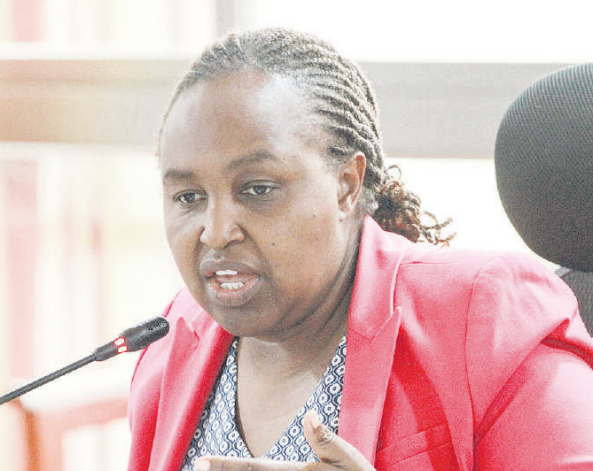
Eldai
Costituency
Member of
Parliament
and National
Assembly
Committee
on Trade Vice
chairperson
Marianne Kitany
in Parliament on
May 13
/ENOS TECHE
The government will easily snoop on your online activities if the proposed amendments to the country’s information and communication law sail through.
The Kenya Information and Communications
(Amendment) Bill, 2025, by Aldai MP Marianne Kitany, seeks to compel Internet
service providers (ISPs) to implement metered billing systems that assign each
customer a unique, traceable internet meter number.
The system will generate invoices based on actual consumption and allow customers to verify their bills, a move Kitany argues aims to protect consumers and regulate internet use more effectively.
ISPs will also be required to submit detailed data from these billing systems, including each subscriber’s meter number, to the Communications Authority of Kenya (CA) at least once every financial year.
The Bill seeks to amend the Kenya Information and Communications Act by expanding the definition of a “telecommunication operator” to explicitly include internet service providers.
It further adds new sections under the Act requiring ISPs to implement these metered billing systems.
“The bill requires internet service providers to develop and deploy quality metered billing systems capable of monitoring customer usage, converting it into readable details, and generating invoices that reflect the value customers receive from various internet services,” the bill’s memorandum of objects and reasons reads.
All existing ISP licenses and registrations will remain valid until their expiry, with future licensing conducted under the amended Act.
The proposed law also imposes duties on telecommunications operators regarding SIM card registration, requiring full subscriber details such as names, identity card numbers, dates of birth, and physical addresses to be collected and securely maintained.
Disclosure of subscriber information will be allowed only under specific legal circumstances, such as criminal investigations or statutory functions.
The bill notes that violations of these provisions may attract fines of up to Sh5 million.
Furthermore, it introduces strict age verification rules for social media users. Both new and existing users of platforms like WhatsApp, Facebook, Instagram, and LinkedIn will be required to confirm their age using their national identification cards before gaining access.
Content service providers (CSPs) and application service providers (ASPs) will be mandated to enforce these verification procedures, while mobile service providers will ensure SIM card registration aligns with these requirements.
Kitany highlighted the need for such measures, noting users entering false birth dates or pseudonyms easily bypass the current online platforms’ age-verification methods.
“The society as a whole, including all participants of the internet ecosystem, is responsible for safeguarding the rights of children in their access and use of information, communication and technological products and services,” reads the Bill.
The proposal has attracted a heated public debate, with information and communication experts terming it backward and an insult to the milestones the country has achieved on data protection.
Communications expert, Patrick Kinyua, wonders what the proposed law intends to cure apart from deliberate efforts to muzzle freedom of expression.
“What problem is the proposed law seeking to cure? Why is the government hell-bent on monitoring what its subjects are searching online? This is a clear reflag that this regime is developing dictatorial tendencies,’’ he said on X.
Another user, @LegendKE, likened the proposal to the Moi era law that required periodic update, publication and sharing of postal and telephone data.















